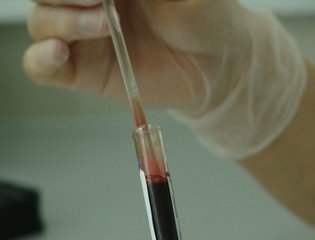Ultrasound scans for ovarian cancer
Ultrasound scans are usually the first imaging test if ovarian cancer is suspected. They use sound waves to create pictures of the pelvic organs. There are two main types: an internal scan called a transvaginal ultrasound (TVUS) and an external abdominal ultrasound. These scans help doctors check the size, shape, and features of any masses and spot anything unusual. An ultrasound alone can’t confirm if cancer is present, so further tests are often needed for a full diagnosis.
Key takeaways
- What to do if your ultrasounds come back normal?
- What happens after ultrasounds?
- FAQ's
What is an ultrasound scan?
Ultrasound scans usually take place in the radiology department of your local hospital and are used to produce a picture of your tissues and organs inside your body to help identify any unusual lumps or masses. A sonographer or radiologist will use a handheld device or probe to create a picture to using sound waves.
If you have been referred for an ultrasound scan, you will receive an appointment letter which will contain any information regarding any preparations (you may be requested to have a full bladder). The estimated length of time of the scan typically takes between 15 and 45 minutes.
There are two types of ultrasound scan: abdominal and pelvic/transvaginal.
Can an ultrasound scan be used to diagnose ovarian cancer?
Whilst an ultrasound scan can detect potential signs of ovarian cancer, such as a mass, fluid build up or growth. It is not a definite answer. The only way to accurately detect ovarian cancer is to have a CA125 blood test and an ultrasound scan, followed by a biopsy for diagnosis.
Limitations of ultrasound scans for diagnosing ovarian cancer
Ultrasounds aren’t perfect for finding ovarian cancer as they can’t always tell if a lump is harmless or cancerous. Other problems also include how skilled the person doing the scan is, difficulty spotting very small or early cancers, and the fact that some cancers start in the fallopian tubes, which a standard ovarian scan might not catch.
Types of ultrasound scans
Abdominal ultrasound scan
An abdominal ultrasound scan is used to create a picture of your ovaries, womb and other internal organs in your tummy and pelvis (abdominal area). Clear gel will be applied to your tummy and the sonographer or radiologist will move the handheld device over your tummy. This should not cause you any discomfort, however you may be asked to have a full bladder for this scan.
Pelvic/transvaginal ultrasound scan
A transvaginal ultrasound involves a small probe being inserted into your vagina which allows for a closer look at things such as the ovaries, womb, and fallopian tubes. The handheld probe will be covered in a protective sheath with lubricating gel before it is inserted into your vagina. You may feel some discomfort however it should not be painful.
How an ultrasound scan works
A diagnostic ultrasound is a safe, non-invasive way to look inside the body. An ultrasound uses a small device called a transducer to send out sound waves that are too high for us to hear. Usually, the probe is placed on the skin, but sometimes it’s put inside the body through the vagina or the digestive tract get a clearer picture. Ultrasound can also be used during surgery by placing a sterile probe in the area being operated on.
Who can get an ultrasound scan
To get an ultrasound, you usually need a referral from a healthcare professional, like your GP or a consultant. This makes sure the scan is needed and right for your symptoms. If you choose to go private, you can often book an ultrasound without a referral, but it’s still a good idea to speak to a doctor first. They can help you decide if an ultrasound is the right test and explain what the results might mean.
Ultrasound scan results
Ultrasound scans are used to look for anything usual, however they cannot diagnose ovarian cancer by itself. Your scan results will be sent to your GP – if there is any indication of ovarian cancer your GP will refer you to a gynaecological oncologist. The gynaecological oncologist will arrange for you to have some either keyhole or open surgery to establish if you have ovarian cancer.
What if my ultrasound scan results are normal?
If your ultrasound scans come back normal it may be that you don't have ovarian cancer, however the only way to truly know is with a CA125 test and a biopsy. If you've had a normal test result but your symptoms don't improve, go back to your GP as you may need to be re-tested. Things other than ovarian cancer that could present with symptoms such as bloating, stomach pain, difficulty eating and weeing more frequently include:
- Gallstones
- Gastro infections
- Indigestion
- Irritable bowel syndrome (IBS)
- Pulled muscles
- Pregnancy
- The onset of the menopause
- Urinary tract infections.
Your GP should continue to investigate to see if your symptoms are linked to any of the above, or something else.
What happens after an ultrasound scan?
After an ultrasound for suspected ovarian cancer, the sonographer reviews the images and writes a report. This report is sent to the doctor who requested the scan, usually your GP or a specialist. They’ll explain what the scan showed and whether more tests are needed. If the ultrasound finds something unusual, you might be asked to have further checks, such as blood tests or a CT scan. If everything looks normal, your doctor will talk through the next steps based on your symptoms and medical history.
Further tests to diagnose ovarian cancer
After an ultrasound for suspected ovarian cancer your GP will explain what the scan showed and whether more tests are needed. If the ultrasound shows something unusual, you might be asked to have further checks, such as blood tests or a CT scan. If everything looks normal, your doctor will talk through the next steps based on your symptoms and medical history.
FAQ's:
Can a pregnancy ultrasound scan detect ovarian cancer?
In early pregnancy, the body produces higher levels of a hormone called human chorionic gonadotropin (hCG). Sensitive home pregnancy tests pick this up and show a positive result.
Very rarely, raised hCG levels can also happen in women with a rare type of ovarian cancer called germ cell cancer. This means that, in unusual cases, someone with this cancer could get a positive result on a home pregnancy test. These situations are extremely rare, and most positive tests are linked to pregnancy, not ovarian cancer.
Are ultrasound scans safe?
Ultrasound scans have been used safely for decades. Research shows no evidence of harm to patients, including pregnant women and their babies, when scans are carried out following professional guidelines.
Should all women get an ultrasound scan?
Investigating ovarian cancer can look different for each person. Some doctors may start with a CA125 blood test, while others begin with an ultrasound. If you have symptoms like bloating, needing to pee more often, feeling full quickly, or tummy pain, it’s important to talk to your GP about whether an ultrasound is right for you.


